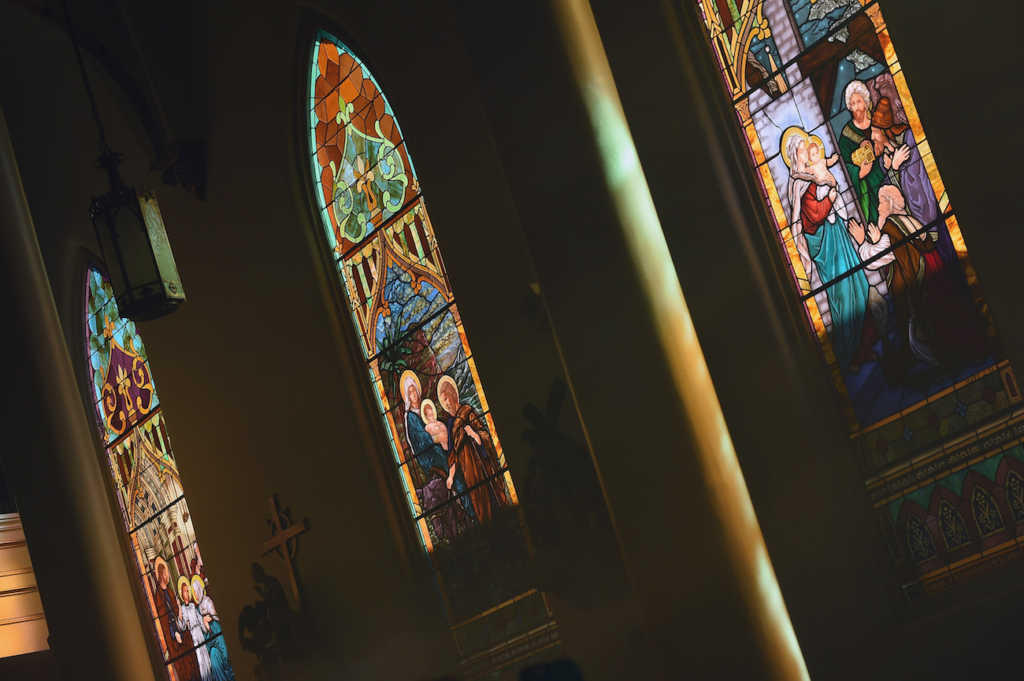The leaders of the Episcopal Church are slated to debate this week and next whether they should overhaul the denomination’s Book of Common Prayer in order to make way for reflections that depict God as neither male nor female, but as a creator without a clearly defined sex.
Up for consideration are two dueling resolutions, each of which could ultimately require major changes to a collection of prayers last revised in 1979, according to The Washington Post.
One of the resolutions calls on the Episcopal Church, the American descendant of the Church of England, to immediately begin changing the Book of Common Prayer while the other, more conservative resolution stipulates the church spend three years studying the existing book, which is rooted in the Anglican version first published in 1549, before making any drastic modifications.
Cathedral Installs Gender-neutral Restrooms as Part of its ‘Mission of Welcome’
The former resolution calls for, among other things, any references to God to be changed from strictly masculine verbiage, as it’s currently written, to refer to the Almighty in gender-neutral terms. While the argument may be a diversion from traditional Christian orthodoxy, it is not without merit.
“As long as ‘men’ and ‘God’ are in the same category, our work toward equity will not just be incomplete. I honestly think it won’t matter in some ways,” the Rev. Wil Gafney, a professor of the Hebrew Bible at Brite Divinity School in Fort Worth, Texas, who is on the committee considering the resolutions, told the Post.
The reverend went on to admit she sometimes replaces references to “King” with nouns like “Creator” or “Ruler” when she’s preaching and said she will often swap “He” with “She” in her sermons.
If one looks through Scripture, they’ll find God described in both feminine and masculine terms. The Almighty is known throughout the Bible as “Father,” but in the Old Testament, the creator is, on several occasions, painted in a motherly light.
For example, when Jesus taught his disciples to pray, as it’s recorded in Luke 11:1-4, Jesus instructed His followers, “When you pray, say, ‘Father, hallowed be your name.’” Then in 1 Corinthians 8:6, the apostle Paul wrote, “For us, there is but one God, the Father, from whom all things came and for whom we live.”
Then, in the Old Testament, the prophet Isaiah, for example, depicted God as maternal. In Isaiah 66:13, he wrote, “As a mother comforts her child, so will I [God] comfort you; and you will be comforted over Jerusalem.” It should be noted, of course, God is never referred to in the scriptures as “mother,” but the Almighty’s feminine attributes are hardly deniable.
That’s not the only consideration some want to be debated. There are advocates who would like to see language added about Christians’ responsibility to conserve the earth and others who would like the book’s prayers to recognize and honor a transgender person’s selection of a new name as well as celebrate same-sex wedding ceremonies, which the denomination has been performing for years.
Mike Pence Issues Classy Response After LGBTQ Community Organizes Pride Festival in His Hometown
There are some, though, who aren’t too keen on making such broad changes — at least not so quickly.
Chicago Bishop Jeffery Lee, who is also on the committee considering the changes and supports the second resolution, said the Book of Common Prayer “really constitutes the Episcopal Church in significant ways. Our theology is what we pray.”
Nevertheless, he told the Post, it’s important for church leaders to pay attention to women’s requests, particularly in this current “Me Too” era, when women are beginning to speak up about sexual abuses at the hands of powerful people in all realms of society — spanning from Hollywood to Washington, D.C., and everywhere in between.
Lee said the current social climate has made clear “how much we do need to examine our assumptions about language and particularly the way we imagine God.”
“If a language for God is exclusively male and a certain kind of image of what power means, it’s certainly an incomplete picture of God,” he explained. “We can’t define God. We can say something profoundly true about God, but the mystery we dare to call God is always bigger than anything we can imagine.”



